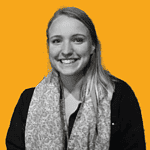Current crises have led to a stark increase in inequalities across the EU. A new Science-for-Policy report recently illustrated the effect that spikes in energy and household expenditures have had on poverty and social exclusion in Europe. But how can we break this cycle?
Sophie McGannan from the NHS Health and Europe Centre discusses the impact of putting yourself in the shoes of a neighbourhood worker and enable societies to become proactive in addressing circumstances which create vulnerability.
What is social exclusion?
Defined by the the European Foundation for the Improvement of Living and Working Conditions (Eurofound) as, ‘a process through which individuals or groups are wholly or partially excluded from full participation in the society in which they live’, social exclusion can have detrimental effects upon a person's health and wellbeing. Within health and social care there is a growing number of socially excluded people whose needs are not recognised or met by current structures and services.
In 2017, 112.8 million people in the European Union (EU) lived in households at risk of poverty or social exclusion. 16.9% of the population in the EU were at risk of poverty even after social transfers according to Eurostat. Often these individuals or groups slip through the net of current service provision and go unnoticed until a crisis arises, and harm has been done – affecting their wellbeing, society as a whole, as well as health and social care costs.
Proactive approaches
But what are the conditions that put people at risk, and how can we overcome them? Services are failing those most vulnerable in our societies, calling for simple, effective solutions to stop someone's situation from getting worse and ultimately causing a great cost to both themselves and society. For our health services to be the pillars of support that people need to thrive while also proving to be cost-effective, they must be redesigned to prevent such vulnerabilities.
ENSURE Interreg 2Seas (2020-2023), explored a proactive approach to innovate local communities and support people in vulnerable situations to regain their strength and break the cycle of social exclusion.
Containing several social and healthcare partners and non-governmental organisations from Belgium, France, the Netherlands, and the UK, the consortium was diverse in composition. It included parties targeting a variety of groups, namely: young migrants, refugees and status holders, people with another ethnic background than the country in which they live, young adults with autism, care avoiders, people on welfare, non-accompanied minors, foster children and foster families, isolated individuals, pregnant women, unemployed/ unskilled/ untrained people.
ENSURE produced a holistic model providing radical system redesign led by front-line workers to break down existing professional silos as well as a bottom up peer-supporter approach. By acting at both levels simultaneously it reaches people in a timely fashion, preventing problems from snowballing.
The project produced a step-by-step guide to implementing ENSURE, using personas to represent these different target groups and take them on their journey through the process. Included within the model, were the peer support training programmes and guide for health and social care professionals to implement peer support work.
Project results highlighted that, thanks to peer support, vulnerable groups gained more access to professional organisations fitting their needs. Peer supporters have therefore played an important role in bridging the gap between individual groups and professional organisations, by making those individuals more confident in themselves and in other people.
Peer support
These findings are also confirmed with the quantitative part of our research. Compared to the start of the project, in the end of it a significant increase was found in vulnerable target group members’ self-esteem and perception of social support, and a small increase in mental wellbeing, resilience, self-reliance and social inclusion. This means that the project slightly increased abilities to develop and maintain mutually beneficial relationships (Tennant et al., 2007) and contributed to improvement in their coping mechanism such as successfully adapting to difficult or challenging life experiences.
The benefits of peer support method have also been found among peer supporters themselves: ‘I feel that the training and experience gained is extremely useful for any sharing with other people’. The project has contributed to confidence in themselves and their abilities. Peer supporters emphasise how much they have learned about their own coping mechanisms during the training. It also shows the programme’s sustainability and long-term impact on the community, as these workers can continue to provide services and support after the programme has ended.
Breaking the cycle
Professionals have also benefited from the project. Thanks to increased collaboration with peer supporters, professionals seem to have gained more knowledge about the problems their target groups face which consequently led to more understanding and engagement.
One of the goals of ENSURE was to break the cycle of intergenerational transmission of problems in groups most affected by vulnerability. The roots of this kind of problem often lead back to the (early) childhood and most people are not aware of their presence. The ENSURE training gave the peer supporters and professionals an insight into the effects of early childhood on transmission of problems to another generation.


Sophie McGannan
Sophie McGannan is a Project Manager at the Health and Europe Centre. The Centre develops, coordinates and manages European public health and social care projects. It is currently lead partner on 9 Interreg projects. Sophie studied law, economics, and management at the University of Lille and has a Masters degree in Public Administration - International Development from the University of York. Sophie is from Maidstone, Kent and has lived in northern France for the last 8 years.

